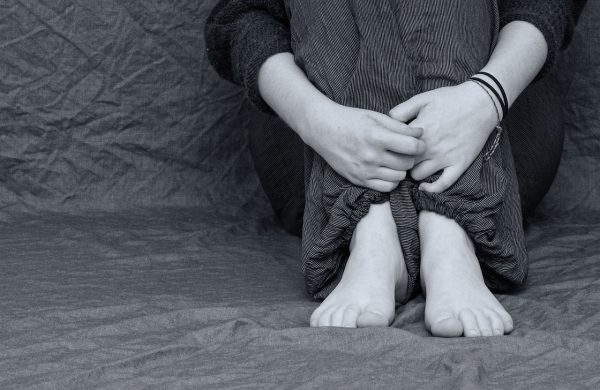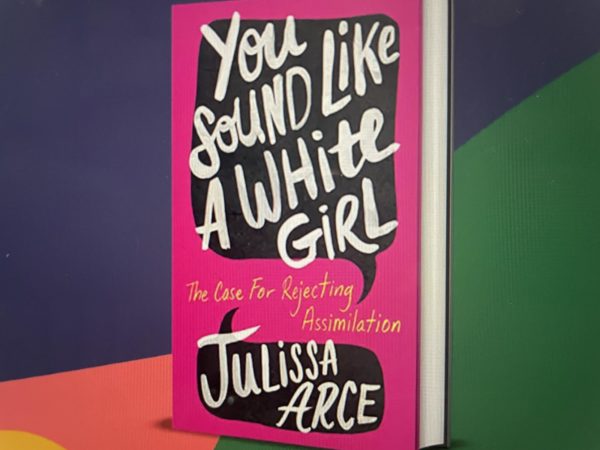Why can’t women just speak out about being sexually assaulted?
A graduate from one of the country’s top law schools, a lifelong career in law, and well respected by his colleagues. On July 9, 2018, Brett Kavanaugh was nominated by President Trump to serve as an Associate Justice of the Supreme Court, the highest court of the country. Although this was a huge milestone in Kavanaugh’s career, Christine Blasey Ford, one of Kavanaugh’s high school classmates, accused the future justice of sexual assault. This led to huge speculations across the country. Senator Graham of South Carolina, like many other men during this Congressional Confirmation Hearing, saw Ford’s action as an attempt to destroy Kavanaugh’s career and reputation. With Ford’s lack of solid evidence about the night of the incident years ago, President Trump and many other men used this argument to invalidate many similar legations, and interpreted Ford’s actions as an attack on men, due to how vulnerable they are to life-ruining accusations. This caused many Americans to say, “why didn’t she JUST speak out about it earlier,” to create a stronger case and have more solid evidence to prove her side of the story.
As easy as it may seem to many who have not gone through such an experience, many women can not JUST speak out about their sexual assault, as if it wasn’t a life scarring moment that can take a lifetime to heal. Women for centuries have been, and still are, feeling a sense of guilt and trauma from their experience with sexual assault. How the social hierarchy in America depicts women, and what these assaults do to women after, are the underlying factors for the guilt and trauma women face that prevents them from speaking out about their experience of being sexually assaulted.
“Oh, he’s right. You know l-l did kiss him back, and I do like him … well why shouldn’t I want this?,” said an anonymous sexual assault victim interviewed by Jubilee. This can be a very common train of thought among victims. Many women after being sexually assaulted, due to how the social hierarchy depicts women, places a sense of guilt upon the individual that prevents them from speaking out about being sexually assaulted. Ever since the beginning of history, women, having the ability to reproduce, have been seen as objects to men for their desires. Comfort women during Japanese imperialism portray this social hierarchy, with Japanese soldiers taking time and effort to capture and force thousands for Chinese women into prostitution for their sexual desires. This social hierarchy continuously established throughout history is sadly still present in today’s society, with the way women blame themselves for being a victim of sexual assault. The guilt of wearing “too revealing” clothing, flirting, or even admitting to liking their assaulter, often are the reasons of guilt among many victims, because women are still overly sexualized. Women should not have to worry about the potential of being assaulted, because they wanted to wear an outfit that shows more skin. People should not assume a woman is consenting, because they are flirting back with them. This heavy, and invalidation of guilt, that many women face placed by a social hierarchy that overly sexualizes women prevents many victims from speaking out about their sexual assault. They believed they were the ones asking for it.
Larry Nassar, a gymnastic doctor, has been charged with 25-40 years behind bars after pledging guilty to molesting more than 130 former patients. Nassar has admitted to sexually assaulting 7 girls, three of which were under the age of 13, without gloves during medical exams and treatments. The aftermath of such a traumatic experience, many victims have to face is a major obstacle that prevents women from speaking out about being sexually assaulted. The trauma women have to face, much like the 7 patients Nassar assaulted, can lead to a lifetime of healing. Many victims after these horrendous events face PTSD by re-experiencing the assault through memories and reminders which takes time and therapy to heal from. The feeling of not having control over your body, and the idea that someone can do whatever they please to you, without your consent, can drive many victims into depression or suicidal thoughts. Having to deal with the trauma like depression and suicidal thoughts, many victims face after sexual assault can take a heavy toll on them emotionally. The need to relive such a traumatic experience and face their assaulter, can and will prevent many victims from speaking out about the sexual assault.
The guilt women carry, caused by the social hierarchy that still overly sexualizes women and the trauma that leads to depression and suicidal thoughts that prevents many women from speaking out about being sexually assaulted. This reality is saddening to realize, due to the number of assaulters that get away with their crimes, because of the lack of awareness and safety to come out about such an experience. In recent times, sexual assault has been spoken of more, and mass media has brought more awareness to this topic with TV shows such as 13 Reasons Why. It starts conversations about sexual assault to make this topic less taboo. There are hotlines to talk to real people about experiencing sexual assault anonymously to help victims through hard times. Although we have progressed majorly on the subject of sexual assault, many women still feel afraid to speak out. Schools should teach students about the importance of consent, along with other important topics in health class. Mass media should continue to produce TV shows and movies that continue the conversation of sexual assault. We as a society must continue building an environment where victims feel safe to confront their assaulter and speak out about being sexually assaulted.











